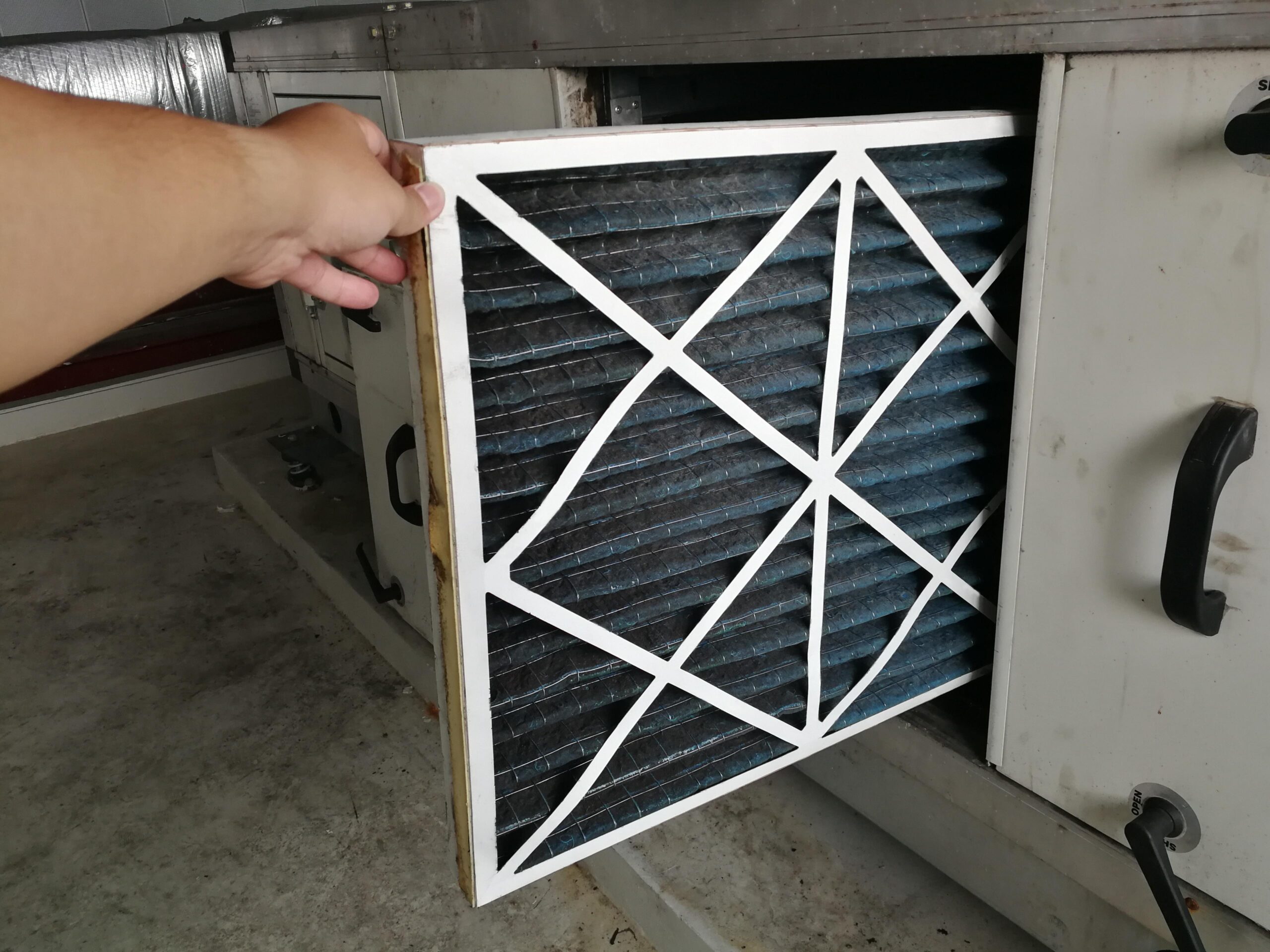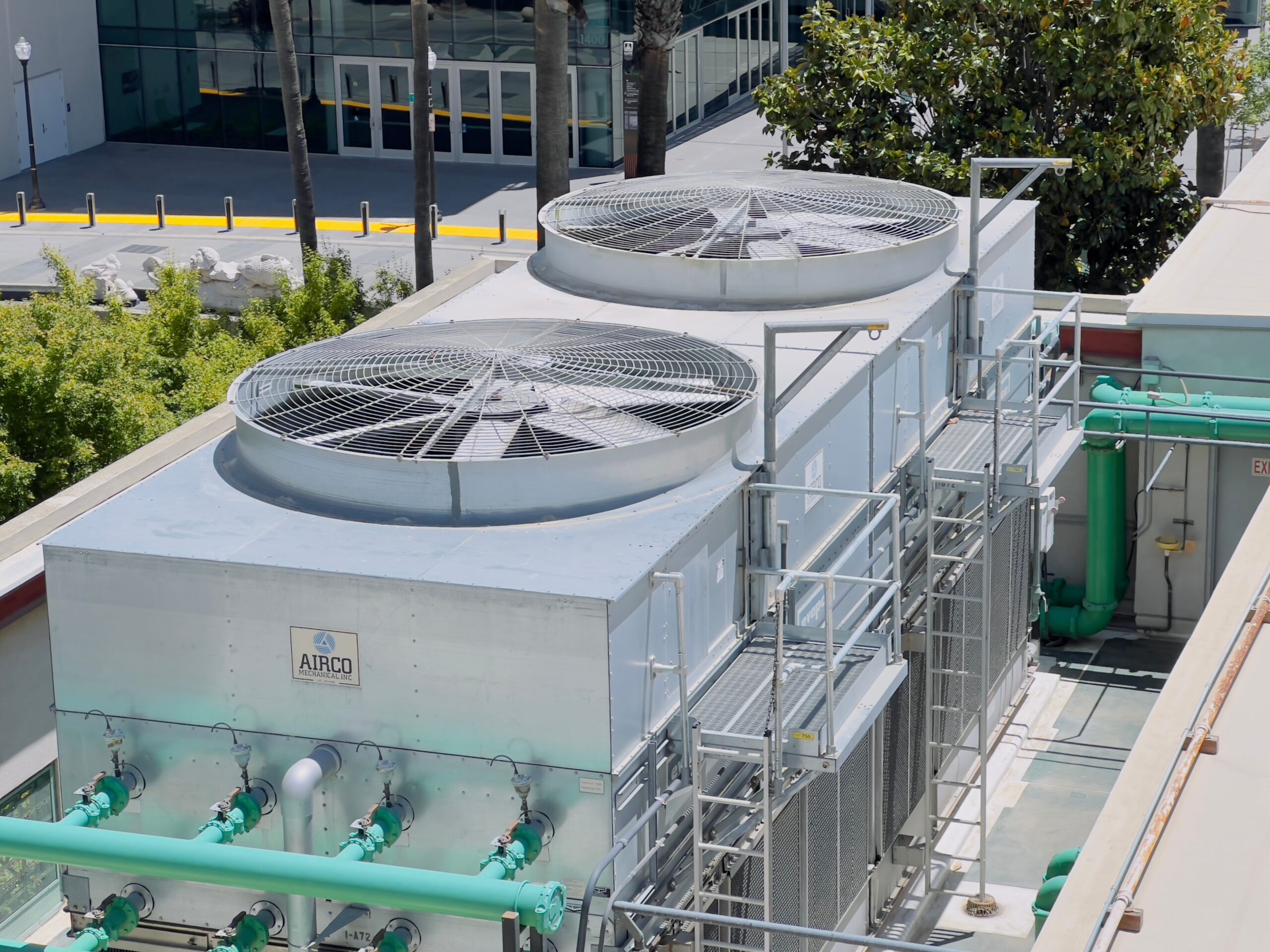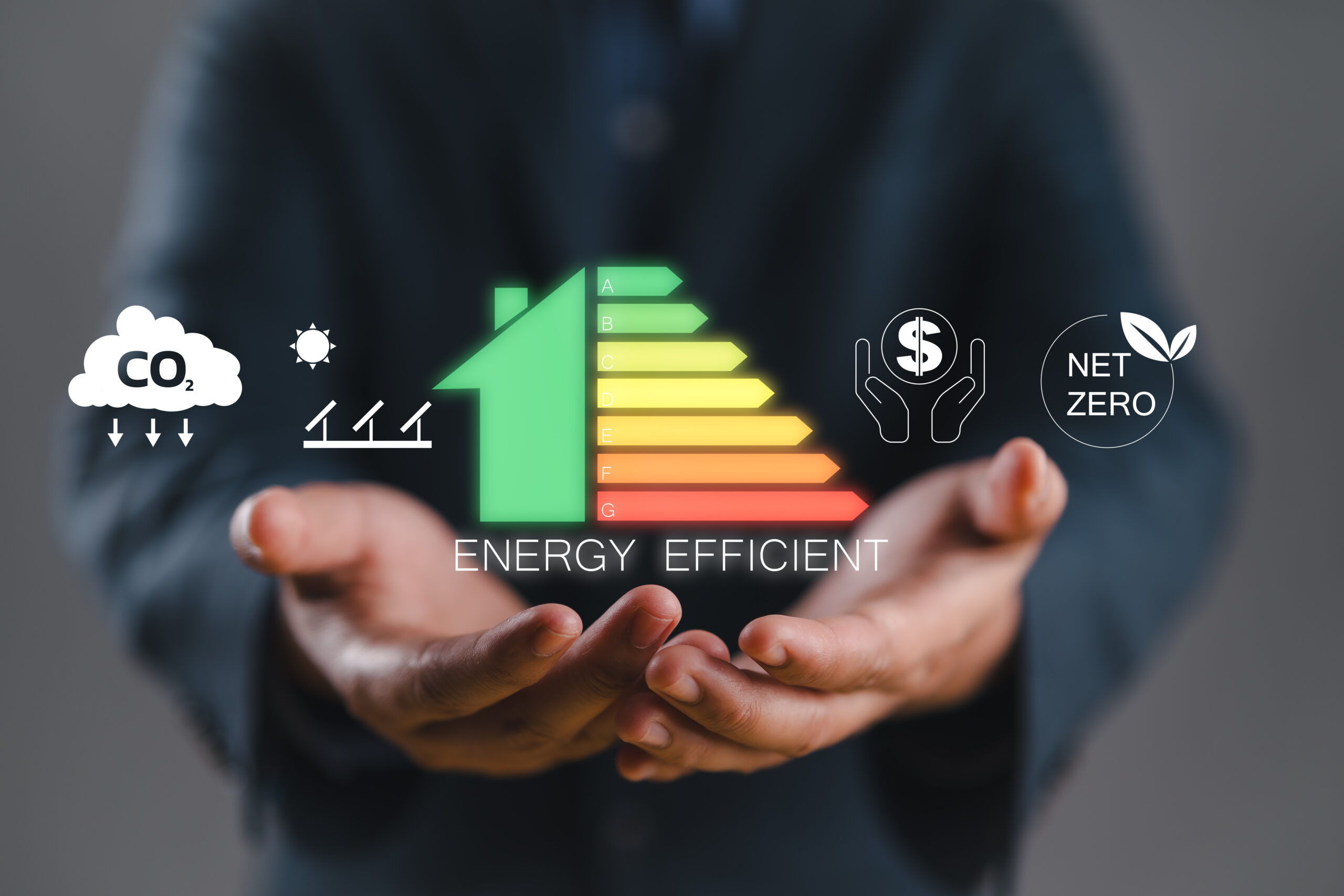What Are the Different Types of Heat Pumps?
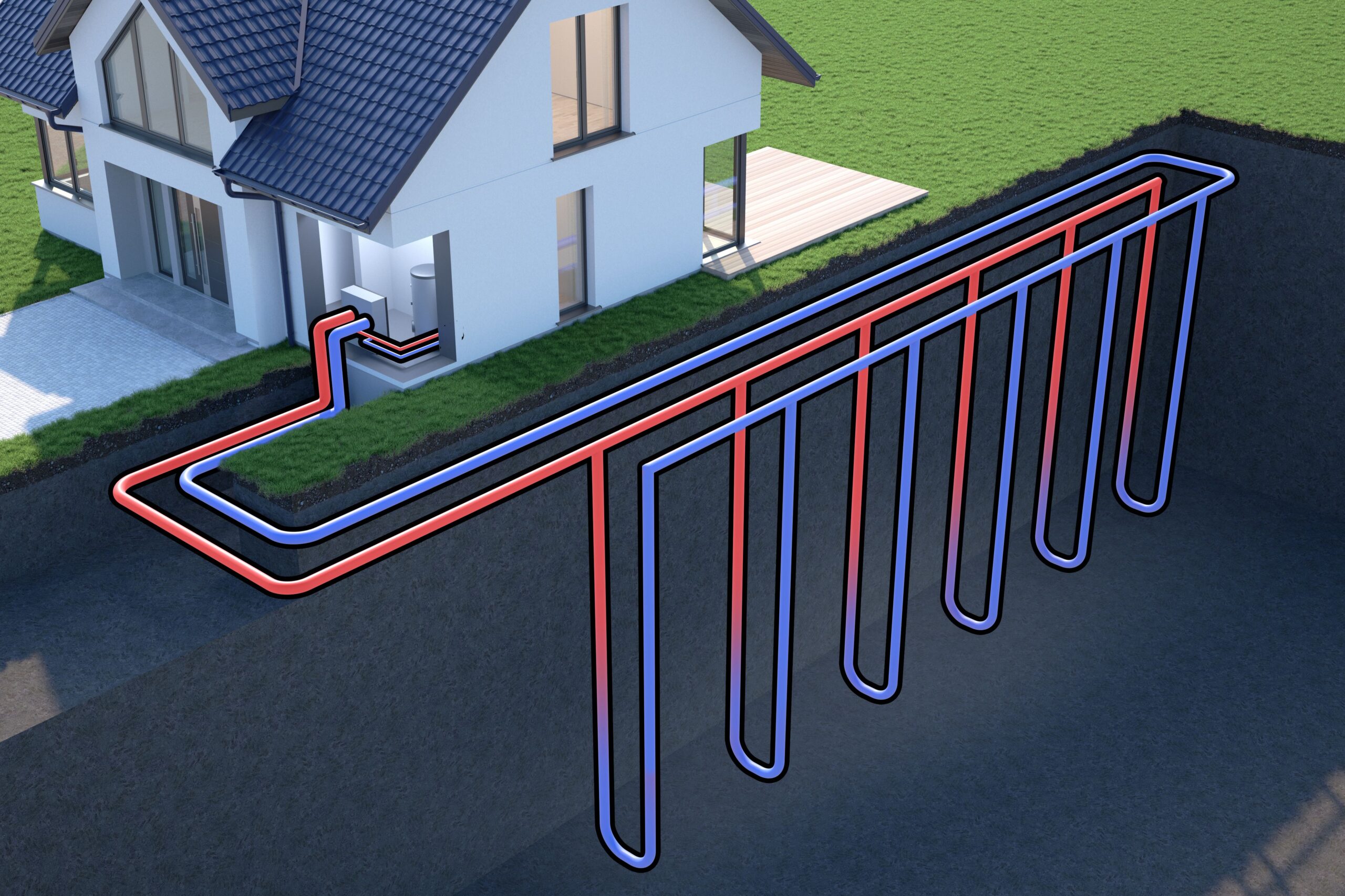
As energy costs continue to rise and environmental concerns take center stage, more homeowners are turning to heat pumps as an efficient, sustainable solution for their heating and cooling needs. However, not all heat pumps are created equal. With decades of experience installing and maintaining these systems, we’ve seen firsthand how different types of heat pumps perform in various settings and conditions. In this comprehensive guide, we’ll break down the major types of heat pumps, exploring their strengths, limitations, and ideal applications.
Comparing the Different Types of Heat Pumps: Air-Source, Geothermal & More
Let’s start with the most common type of heat pump found in American homes: the air-source heat pump.
Air-Source Heat Pumps (Ducted)
When most people think of a heat pump, they’re likely picturing an air-source system. As the most common type of heat pump in the United States, these systems are versatile powerhouses that work with your home’s existing ductwork to provide year-round comfort.
How They Work
Think of an air-source heat pump as a heat transfer system that moves warmth rather than creating it. In winter, it extracts heat from the outside air (yes, even cold air contains heat!) and transfers it indoors through your ductwork. When summer arrives, the process reverses – the system removes heat from your home and releases it outside, keeping your indoor spaces cool and comfortable.
Considerations
If you’ve heard that heat pumps don’t work well in cold climates, it’s time to update that perception. Today’s air-source heat pumps have undergone significant technological improvements. Gone are the days of cold air blowing from registers during winter operations. Modern systems maintain impressive efficiency even as temperatures drop, thanks to ongoing research and development in heat pump technology.
Benefits
- Year-round versatility: One system handles both heating and cooling needs
- Dual-source capability: Can be paired with a gas furnace for optimal performance in extreme conditions
- Advanced technology: Modern systems have overcome historical cold-weather limitations
- Climate adaptability: Suitable for virtually any climate zone
It’s no secret that air-source heat pumps have come a long way in recent years. But how do they stack up against geothermal systems?
Water-Source Heat Pumps (Geothermal)
Often called geothermal heat pumps, water-source heat pumps represent a significant leap forward in heating and cooling technology. While they operate on principles similar to those of their air-source cousins, these systems tap into a far more stable temperature source: water.
How They Work
At its core, a water-source heat pump consists of an indoor unit equipped with several key components: a fan, an air coil, a compressor, and a water coil. The system connects to a water loop that serves as its consistent temperature source. Using refrigerant technology, the system transfers heat between your home and the water source, providing both heating and cooling as needed.
The versatility of water-source heat pumps is evident in their range of configurations. Available as either split systems or single-cabinet package systems, these units can be sized from ½ to 30 tons, making them suitable for virtually any residential application. The systems come in two main categories: water-to-water and water-to-air, each serving different comfort needs.
Water-to-water systems offer remarkable versatility in their applications. Beyond essential space heating, these systems can provide potable hot water, maintain comfortable pool temperatures, power radiant floor heating systems, and even melt snow on driveways and walkways. Working with forced air ducted systems, water-to-air systems can be equipped with a desuperheater – a secondary heat exchanger that can heat your domestic hot water, adding another layer of efficiency to your home.
Benefits
The benefits of water-source heat pumps extend far beyond their versatility. These systems offer superior efficiency that translates to lower operating costs, and their performance remains consistent regardless of outside air temperature. Unlike traditional heating systems, they require minimal maintenance and boast an impressive lifespan. Perhaps most importantly, they free homeowners from dependence on fossil fuels while maintaining reliable performance in any climate, provided they receive appropriate water temperatures.
Efficiency
When it comes to energy efficiency, water-source heat pumps truly shine. To achieve Energy Star certification, systems must meet minimum requirements of 17.1 EER and 3.6 COP for closed-loop, water-to-air applications. Many current systems dramatically exceed these benchmarks, achieving EER ratings above 30 and COP ratings above 5. These numbers translate to significant energy savings for homeowners.
Considerations
While the initial installation cost of a water-source heat pump system may be higher than traditional systems, the long-term financial benefits make them an attractive investment. Operating costs are notably lower, and many systems qualify for federal rebates and incentives when they meet Energy Star requirements. Combined with their exceptional durability and longevity, these systems often prove to be a wise financial decision for homeowners looking to invest in their home’s future.
Ground-Source Heat Pumps (Geothermal)
While similar to their water-source counterparts, ground-source heat pump systems tap into an even more fundamental resource: the earth itself. These systems harness the constant temperature maintained beneath the frost line, creating a remarkably efficient heating and cooling solution. During winter months, they extract heat stored in the earth and transfer it into your home. In summer, the process reverses, moving heat from your home back into the ground, which acts as a natural heat sink.
How It Works
The heart of a ground-source heat pump system is its ground loop – a network of connected pipes buried near your home. These pipes can be installed either vertically or horizontally, depending on your property’s characteristics and available space. Through these pipes flows either water or a mixture of water and antifreeze, which serves as the medium for heat transfer between your home and the surrounding soil. Once the heat transfer occurs, conventional ductwork distributes the conditioned air throughout your home.
Efficiency
The efficiency gains of ground-source heat pumps over traditional air-source systems are substantial. These systems can reduce energy consumption by 25% to 50% compared to air-source heat pumps. Perhaps even more impressive is their ability to maintain high efficiency levels even in extreme conditions, achieving 300% to 600% efficiency on the coldest winter nights. The typical energy efficiency ratings (EER) for these systems usually fall between 20 and 30, showcasing their exceptional performance.
Benefits
Beyond their remarkable efficiency, ground-source heat pumps offer several distinct advantages. They operate more quietly than traditional air-source units and typically have a longer lifespan. Maintenance requirements are minimal, and their performance isn’t affected by outdoor air temperature fluctuations, ensuring consistent comfort year-round.
Considerations
However, potential buyers should consider several important factors before investing in a ground-source system. The initial installation cost typically exceeds that of traditional air-source heat pumps, largely due to the extensive work required to install the ground loop system. Additionally, finding qualified contractors with specific experience in ground-source heat pump design and installation can be challenging in some areas. These considerations shouldn’t necessarily deter interested homeowners, but they should factor into the decision-making process.
Geothermal vs Air Source Heat Pumps: Which Is Better?
If you’re considering a heat pump for your home, you’re likely weighing the benefits of geothermal vs air source systems. While both options offer advantages over traditional heating and cooling methods, they differ in ways that could significantly impact your decision. To determine which type of heat pump works best for you, let’s break down what matters most to homeowners: cost, efficiency, potential savings, and system lifespan.
Understanding Your Investment
Let’s talk about cost first, because it’s often the biggest factor in any home improvement decision. Geothermal systems require a larger upfront investment — typically between $10,000 and $30,000, though costs can reach $50,000 depending on your property. Why such a high price tag? The installation process involves bringing in heavy machinery to dig trenches and install an underground loop system. Think of it as installing a small-scale underground utility system for your home.
Air source heat pumps, on the other hand, are more budget-friendly initially. For a ductless system, you’re looking at $3,500 to $6,000 per indoor unit, while a central, ducted system typically runs between $12,000 and $20,000. The installation is simpler, causing minimal disruption to your property.
What It Means for Your Bills
Here’s where things get interesting. While both systems are remarkably efficient, geothermal systems take the lead in this race. For every 100 kilowatts of electricity an air source heat pump uses, it produces about 400 kilowatts of thermal energy. But geothermal systems push this even further, producing up to 600 kilowatts from the same input. In practical terms, this means lower monthly utility bills with a geothermal system.
Make Tax Credits Work for You
The federal government offers substantial incentives for both types of systems through various programs. Under Tax Section 25C (Nonbusiness Energy Property Credit), part of the Inflation Reduction Act of 2022, homeowners can receive a 30% tax credit on qualifying ENERGY STAR® heat pump installations, with a maximum credit of $2,000 per year.
For geothermal systems specifically, Tax Section 25D offers a 30% tax credit on installation costs through 2032, with the percentage decreasing to 26% in 2033 and 22% in 2034. Additionally, the High-Efficiency Electric Home Rebate Program provides income-based rebates up to $8,000 for installing all-electric heat pumps.
To claim these credits, the system must be installed in your primary residence and meet federal efficiency standards. Maintaining proper documentation, including purchase receipts, installation invoices, and product certifications, is crucial. These credits can be claimed using IRS Form 5695 when filing your federal return, though it’s advisable to verify current rules with the IRS or a tax professional, as requirements can change.
Longevity
When it comes to lifespan, geothermal systems have a distinct advantage. Because their main components are protected either underground or inside your home, they’re less exposed to weathering and environmental stress. While air-source heat pumps typically last 15 to 25 years, geothermal systems offer even greater longevity. The indoor components of a GSHP can last up to 25 years, and the underground ground loop system can remain functional for more than 50 years.
So, Which Type of Heat Pump is the Best?
What’s “best” is all about what works for you. Check out this chart that breaks down the main types of heat pumps and their key features. Whether you’re considering an air-source, geothermal or water-source system, we made it simple to compare costs, efficiency ratings, lifespans, available tax credits, and more.
|
Type |
Cost |
Efficiency |
Lifespan |
Tax Credits |
Best For |
Maintenance |
|
Air-Source Heat Pump |
$3,500-$6,000 per unit (Ductless) $12,000-$20,000 (Ducted) |
Around 400% efficiency |
15-25 years |
30% of cost up to $2,000 |
Homeowners seeking lower upfront costs and simpler installation |
Regular maintenance required, exposed to elements |
|
Ground-Source (Geothermal) |
$10,000-$30,000 (up to $50,000) |
Up to 600% efficiency |
Indoor unit: 25 years Ground loop: 50+ years |
30% of total cost through 2032 |
Long-term homeowners wanting maximum efficiency |
Minimal maintenance, protected components |
|
Water-Source Heat Pump (Geothermal) |
$10,000-$30,000 |
EER: 17.1-30+ COP: 3.6-5.0+ |
25+ years with minimal maintenance |
30% tax credit through 2032 (26% in 2033, 22% in 2034) |
Homes seeking high efficiency regardless of climate (can be used with boiler/tower systems.) |
Easy to maintain, long-lasting system that doesn’t rely on fossil fuels |
Still can’t decide which type of heat pump best suits your needs? Let the experts at Jack Lehr Heating, Cooling & Electric guide you through this important decision. We’ll evaluate your home’s unique characteristics, understand your comfort preferences, and consider your budget to recommend the perfect heat system. Plus, we’ll help you maximize available tax credits and rebates to get the most value from your investment.
Call us today for a personalized consultation — we’re here to make your decision easier and ensure your complete satisfaction with whichever system you choose.
Questions or need more information?
Contact Us

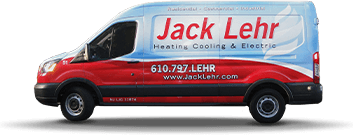
We Treat You Like Family
When you choose Jack Lehr Heating Cooling & Electric, you’ll benefit from our:
When you choose Jack Lehr Heating Cooling & Electric, you’ll benefit from our:
- 50+ years of experience
- Our installation and service guarantees
- Top-of-the-line products
- Respect for your home or business
- Financing options
- And much more!

